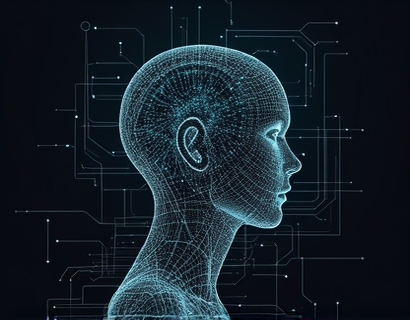AI-Generated Podcasts: Transforming Audio Entertainment with Intelligent Content Creation
In recent years, the landscape of audio entertainment has undergone a significant transformation, thanks to the integration of artificial intelligence in content creation. AI-generated podcasts are at the forefront of this revolution, merging advanced technology with creative storytelling to produce captivating and unique content. This shift is not just about automating the production process but about redefining listener engagement and offering a new dimension in discovering and enjoying insightful discussions on diverse topics.
The concept of AI-generated podcasts involves using machine learning algorithms to analyze vast amounts of audio data, understand narrative structures, and generate coherent and engaging content. These algorithms can learn from existing podcasts, identifying patterns in storytelling, pacing, and tone, and apply this knowledge to create original episodes. The result is a blend of human creativity and machine efficiency, producing podcasts that are both authentic and innovative.
Advantages of AI-Generated Podcasts
One of the primary advantages of AI-generated podcasts is the scalability they offer. Traditional podcast production relies heavily on human resources, limiting the number of episodes that can be produced within a given timeframe. AI, however, can generate content around the clock, making it possible to maintain a consistent release schedule without the need for extensive human intervention. This efficiency not only benefits podcast creators but also keeps listeners engaged with fresh content regularly.
Another significant benefit is the cost-effectiveness of AI-generated podcasts. Producing high-quality audio content traditionally involves expenses related to scriptwriting, voice acting, editing, and post-production. AI can significantly reduce these costs by automating many of these steps. For instance, AI can generate scripts based on predefined themes or topics, synthesize voices, and even perform basic editing tasks, all at a fraction of the cost of human labor.
Enhanced Listener Engagement
AI-generated podcasts are designed to captivate listeners through personalized and dynamic content. By analyzing listener preferences and behavior, AI can tailor episodes to individual tastes, ensuring a more engaging experience. This personalization extends beyond content customization; it also involves optimizing the listening experience through adaptive audio quality, background noise reduction, and even real-time language translation, making podcasts accessible to a global audience.
Moreover, AI can enhance listener engagement through interactive elements. For example, AI-generated podcasts can incorporate quizzes, polls, and other interactive features that encourage listener participation. These elements not only make the content more engaging but also provide valuable feedback to creators, helping them refine future episodes based on audience interaction.
Diverse Podcast Genres and Topics
The versatility of AI in content creation extends to a wide range of podcast genres and topics. Whether it's a deep dive into scientific discoveries, a discussion on contemporary social issues, or a fictional narrative set in a futuristic world, AI can handle it all. This diversity ensures that there is something for everyone, catering to the varied interests of the audience.
In the realm of educational podcasts, AI can generate episodes that are both informative and entertaining, breaking down complex subjects into digestible segments. For entertainment-focused podcasts, AI can create compelling storylines and character developments, maintaining the high standards of traditional storytelling while pushing the boundaries of what is possible.
Challenges and Considerations
Despite the numerous advantages, AI-generated podcasts are not without challenges. One of the primary concerns is the authenticity and emotional depth of the content. While AI can mimic human-like speech and narrative structures, it often lacks the nuanced emotional expression that human hosts bring to a podcast. This can sometimes result in content that feels less relatable or engaging to listeners.
Another challenge is the potential for over-saturation. As more creators adopt AI tools, the market could become flooded with similar content, making it harder for individual podcasts to stand out. Creators must find unique angles and high-quality production values to differentiate their content in a crowded landscape.
Future of AI-Generated Podcasts
The future of AI-generated podcasts looks promising, with ongoing advancements in AI technology addressing current limitations. Improvements in natural language processing and emotional AI are expected to bridge the gap between machine-generated content and human authenticity. These advancements will not only enhance the listening experience but also open up new possibilities for creative expression.
Furthermore, the integration of AI with other technologies, such as virtual reality and augmented reality, could lead to immersive audio experiences that combine sound with visual elements, creating a multi-sensory engagement for listeners. This convergence of technologies has the potential to redefine how we consume and interact with audio content.
Conclusion
AI-generated podcasts are transforming the audio entertainment industry by offering a blend of innovation and creativity that traditional methods cannot match. Through scalable production, cost-effectiveness, enhanced listener engagement, and diverse content offerings, AI is reshaping the way we experience podcasts. While challenges remain, the future holds exciting possibilities for creators and listeners alike. As technology continues to evolve, the intersection of AI and podcasting will undoubtedly lead to new frontiers in audio entertainment, keeping the medium fresh and engaging for years to come.









































